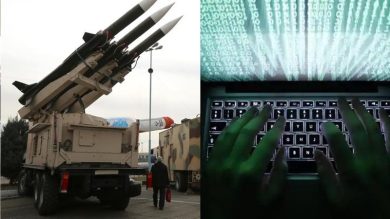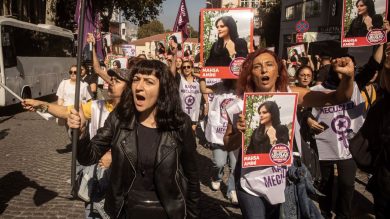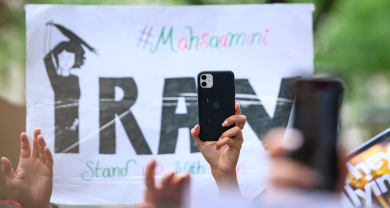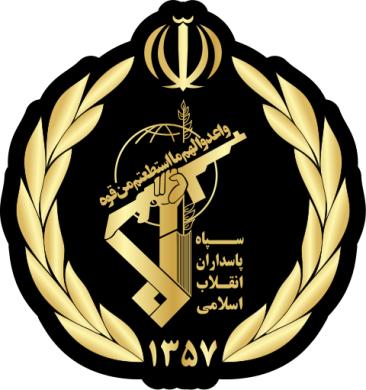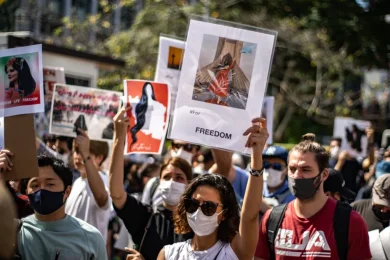Iran’s prison system has long been a tool of repression, used by the Islamic Revolutionary Guard Corps (IRGC) to silence dissent and punish activism. Among the most targeted and mistreated are women political prisoners—activists, journalists, students, and human rights defenders who dared to challenge gender discrimination, political oppression, and state brutality.
Inside prisons like Evin and Qarchak, these women endure torture, psychological abuse, and inhumane conditions. Yet, their courage and resilience continue to inspire the fight for freedom and democracy. This report delves into the hidden realities of these prisons, the methods of repression used by the IRGC, and the global urgency to support these women.
1. The IRGC’s Role in Suppressing Women Political Prisoners
A. How Women Become Political Prisoners
Women in Iran are imprisoned for peaceful activism, including:
• Removing their hijabs in protest of compulsory veiling laws.
• Reporting on human rights violations and state corruption.
• Protesting election fraud, economic mismanagement, and government policies.
• Demanding justice for victims of IRGC brutality and executions.
The IRGC’s Intelligence Unit is responsible for tracking, arresting, and interrogating these women, charging them with vague offenses like:
• “Propaganda against the state.”
• “Acting against national security.”
• “Encouraging moral corruption.”
Once arrested, they face harsh interrogations, solitary confinement, and forced confessions before being sentenced in sham trials.
2. Notorious Prisons: Where Women Are Held
A. Evin Prison: Iran’s Most Infamous Political Prison
Located in Tehran, Evin Prison is where many high-profile activists and journalists are detained. Known as Iran’s “Torture Factory”, it is infamous for:
• Solitary confinement cells, where detainees are kept in total isolation for weeks or months.
• Physical torture, including beatings, electrocution, and stress positions.
• Psychological torture, such as sleep deprivation, forced confessions, and threats against family members.
• Sexual abuse, used to humiliate and break women’s spirits.
Many female prisoners are subjected to mock executions or forced to listen to the screams of other tortured detainees to instill fear and compliance.
B. Qarchak Prison: Hell for Women
Qarchak, located in Varamin, is considered one of the worst women’s prisons in the world due to:
• Overcrowding, with up to 20 prisoners crammed into cells meant for 5.
• Lack of sanitation, leading to severe infections and untreated diseases.
• Violence by criminal inmates, often encouraged by prison guards.
• Malnutrition and denial of medical care, which have led to serious illnesses and deaths.
Prisoners describe Qarchak as a “death sentence”—not just because of the conditions, but because the IRGC ensures they suffer slowly.
3. Stories of Courage: Women Who Refuse to Be Silenced
A. Narges Mohammadi: A Voice for Human Rights Behind Bars
• A Nobel Peace Prize winner, imprisoned for speaking out against torture and executions.
• Endured solitary confinement, repeated arrests, and denial of medical treatment.
• Continues to write and resist from within prison, exposing IRGC abuses to the world.
B. Nasrin Sotoudeh: The Lawyer Who Defended Women
• A human rights lawyer arrested for defending women who removed their hijabs.
• Sentenced to 38 years in prison and 148 lashes.
• Despite torture and harsh conditions, she remains a symbol of resilience.
C. Sepideh Gholian: The Journalist Who Won’t Back Down
• Arrested for reporting on labor rights protests.
• Beaten, forced into a televised confession, and repeatedly re-arrested.
• After her release, she was rearrested within hours for chanting anti-regime slogans outside Evin Prison.
D. Atena Daemi: A Prisoner of Conscience
• Jailed for campaigning against the death penalty in Iran.
• Tortured, kept in inhumane conditions, and repeatedly denied medical care.
• Continues to speak out from prison, inspiring activists worldwide.
These women represent thousands of unnamed prisoners who suffer in silence but refuse to let fear win.
4. Tactics of Fear and Control Used by the IRGC
A. Torture and Physical Abuse
The IRGC’s interrogators use brutal tactics to extract false confessions, including:
• Severe beatings and electrocution.
• Mock executions to induce psychological trauma.
• Sexual violence, including threats of rape.
B. Psychological Warfare
• Family members threatened or arrested to force compliance.
• Sleep deprivation and extended isolation to break prisoners’ spirits.
• Public shaming via forced confessions aired on state TV.
C. Medical Neglect as Punishment
• Prisoners denied medical treatment for chronic illnesses and injuries sustained from torture.
• Hunger strikes punished with further isolation and brutality.
These methods are intended not just to punish but to deter other women from resisting—yet they continue to rise.
5. Global Solidarity: How the World Can Help
A. Designate the IRGC as a Terrorist Organization
• The U.S. has already designated the IRGC as a terrorist entity.
• The EU, UK, and other nations must follow suit to cut off financial and diplomatic support.
B. Demand the Release of Women Political Prisoners
• UN human rights organizations must demand the unconditional release of imprisoned women.
• International campaigns and protests must keep the names of these women visible to prevent further abuses.
C. Sanction Iranian Officials Responsible for Human Rights Violations
• The judges, prosecutors, and IRGC officers involved in torturing women activists must be held accountable.
• Targeted sanctions should prevent IRGC-affiliated individuals from traveling or conducting business abroad.
D. Provide Digital and Legal Support
• Tech companies should offer VPNs, encrypted apps, and secure communication channels for activists.
• Legal organizations should push for international trials against IRGC human rights violators.
E. Amplify Voices and Support Media Coverage
• International media must prioritize stories of Iranian women political prisoners.
• Writers, artists, and activists should use their platforms to share the voices of imprisoned women.
Conclusion: Women Will Not Be Silenced
Despite torture, imprisonment, and threats, Iranian women political prisoners remain symbols of resilience and defiance. The IRGC’s brutality has failed to break their spirits—instead, it has strengthened their cause.
Their stories must not remain hidden. The world must act to:
✔ Expose the IRGC’s crimes against women.
✔ Demand the immediate release of all political prisoners.
✔ Sanction and hold accountable those responsible for their suffering.
✔ Ensure that Iranian women’s fight for freedom is never forgotten.
The future of Iran is being written inside its prisons, where courageous women refuse to be silenced. The world must amplify their voices.
Join Our Newsletter!
Stay informed with the latest updates, news, and ways to take action in the fight for justice and global security. Sign up now to get updates delivered straight to your inbox!

